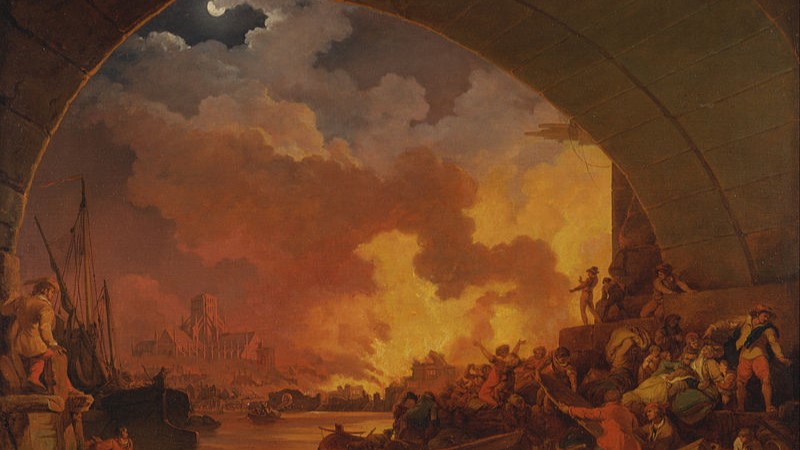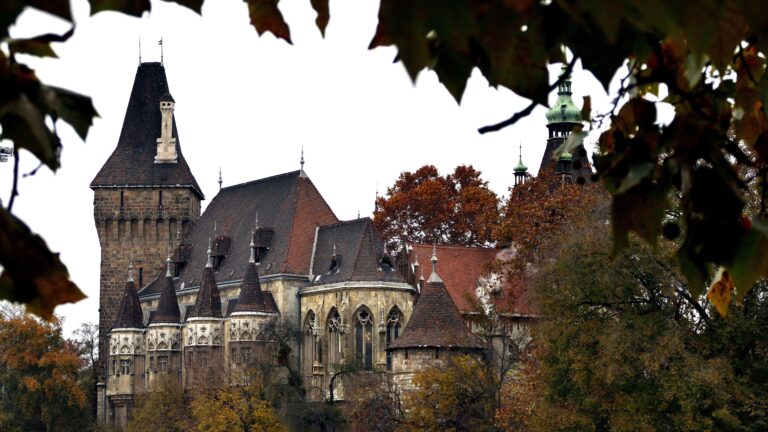Spring is upon us at last. The winter in London was leaden: wet and grey and long. With brightening skies and lightening spirits comes, for me, a sense of purpose renewed: Und morgen wird die Sonne wieder scheinen.
It is a sense my country as a whole desperately requires.
Not long ago, I had a drink with an Australian friend who was born and partially educated here. He, his Australian wife and another couple of the same mix had recently been on a walking tour of the south-west. Though a frequent visitor to London, it is rare for him to drive around the country. Why, he asked with bewilderment and sadness, have we let England become such a dump? Why are the verges littered, the hedgerows overgrown, bridges graffitied, public buildings shabby and decayed, if not derelict?
It is a question I ask myself frequently. I live, somewhat unusually for the 21st century and therefore most appealingly to me, in the City of London, the Square Mile, without which our struggling nation would be truly impoverished.
We in the City are lucky: our public spaces are, for the most part, a tribute to low taxes spent well. Rubbish, domestic and commercial, is collected nightly. City Corporation police constables patrol on foot as well as in marked cars, deterring low-level crime effectively. There is very little defacement of buildings or infrastructure; when it does occur, it is cleaned quickly. We have, as everywhere else, a problem with homelessness. Unlike elsewhere in London, however, it is rare to see the same rough sleeper’s face twice: the unfortunate are tended to swiftly and with kindness.
‘Why…have we let England become such a dump?’
All well and good, then? Not quite. Small things matter: clocks on churches, banks, office blocks and public buildings rarely tell the correct time, if they function at all. More noticeable, perhaps, are the tube and railway stations, the responsibility not of the City Corporation but of Transport for London and Network Rail respectively. They are usually dirty and essentially lawless, particularly after dark. Being constantly on one’s guard is corrosive to both body and soul, so pity the commuters who have no option but to traverse their wild concourses night after night.
Increasingly, shops have delayed exit timers on their automatic doors to trap the thieves who steal with impunity otherwise. And in common with the rest of London, the plague of mobile phone theft is unavoidable. Foolish the person who walks around device in hand—it won’t remain there for long.
Across the whole of London, burglary, vehicle damage, phone and bicycle thefts are essentially unprosecuted. ‘Neighbourhood crimes’, they’re called by the Metropolitan Police. Such a weaselling euphemism for acts, often violent, that have a highly detrimental effect on people’s lives.
One report found that, in the three leading up to July 2024, the Met failed to identify a single suspect in more than 160 cases. This is not even to mention knife crime, an epidemic of truly awful proportions for which nobody, not the Mayor, Sir Sadiq Khan, nor the Metropolitan Police, nor soi disant community leaders, is willing to take responsibility.
Surely, then, there is public outrage? Given this demonstrable lawlessness, there must be hordes on the streets outside Met HQ, demanding that those charged with our protection fulfil that commission? Regrettably not. In railway stations, theatres, and galleries across the capital, notices warn that ‘thieves operate in this area’, as though advertising a tourist service. No hint of apology nor shame from that body failing to do its basic job, yet delighted to prosecute unwary Londoners who fall foul of Britain’s egregious hate speech laws.
Shooting fish in a barrel would be more morally defensible of them.
Given this catalogue of filth, thievery, violence and evaded duty, succumbing to despair would be entirely understandable. Many have. Some leave the capital for the country, willing to endure hideously overcrowded, overpriced trains and loss of property value if it means their children can walk to school without being robbed or stabbed in broad daylight. Others adopt a siege mentality: This too shall pass. Others still write well-meaning but futile letters to their Members of Parliament, urging action. Sometimes, those MPs themselves write equally futile letters to the Home Secretary or Justice Secretary; more often, they commiserate but fail to act.
‘Across the whole of London, burglary, vehicle damage, phone and bicycle thefts are essentially unprosecuted’
How, then, can I have begun this column by talking of renewed purpose? For one thing, because among young people active on both right and left, I see ever-greater awareness of and fury about our decayed State, its civic fabric and the rule of law. For another, though the English are by nature slow to anger and action, we are not supine. Flagrant dereliction of duty does not go unnoticed nor unpunished. It may be endured for a time in the hope of self-correction, but those responsible are always held to account in the end.
Though the political-media classes may have given up, the people over whom they rule and down upon whom they look have not. The vote for Brexit was a clear indication of this, as was the Conservative majority in 2019. Granted, the Tory Party was voted out at the last General Election, but that should give us hope: it was their own incompetence in controlling migration and the consequent rise of Reform which led to defeat, rather than a sea change in public opinion. As demonstrated in poll after poll, the nation cares about migration, crime, housing, education, and failing public services. These issues are all linked very clearly, and their solution will not be from the Left.
Most of all, though, I am reinvigorated because I believe in this country and know its history. Despair is, as I am reminded regularly at Mass, a sin. Despair about England, a nation that has overcome invasion, plague, poverty and civil war, would be not only sinful but stupid. Honi soit qui mal y pense.
Related articles:







